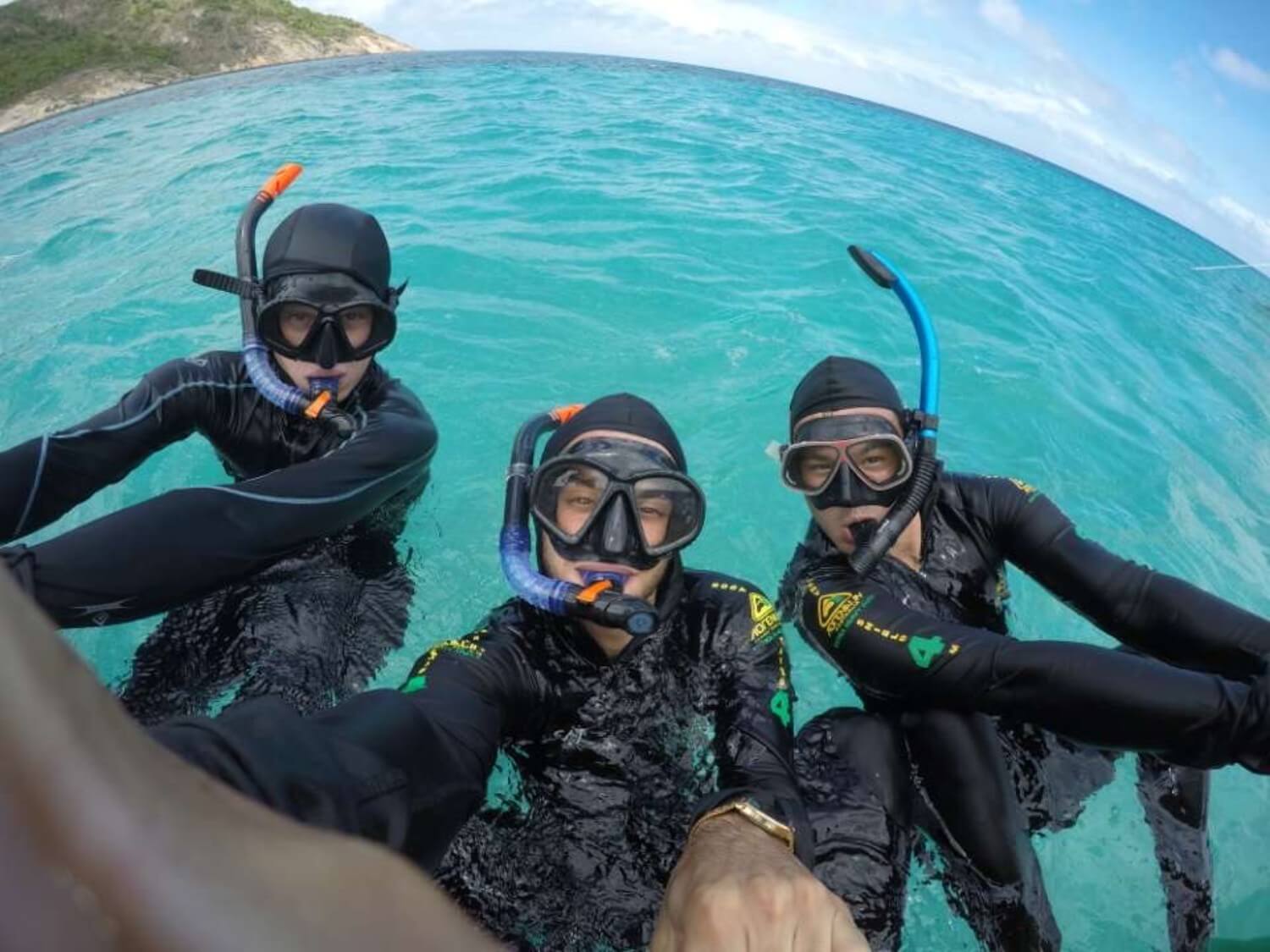This post is excerpted from an article originally published in October 2022 in The Occidental, the student-run newspaper of Occidental College. It is reprinted here with permission.
By Mollie Barnes
Learn more about SIT Australia: Rainforest, Reef, and Cultural Ecology
While Occidental students soak up the Los Angeles sun, Ian Becker (junior) and Adriano Cantelmi (junior) have been hiking through Australian rainforests in search of the ancient musky rat-kangaroo. According to Becker, tracking the musky rat-kangaroo, a small kangaroo that remains similar to its ancestors 20 million years ago, is one of the major projects the two have worked on along with Colin Green, a junior at Middlebury College.
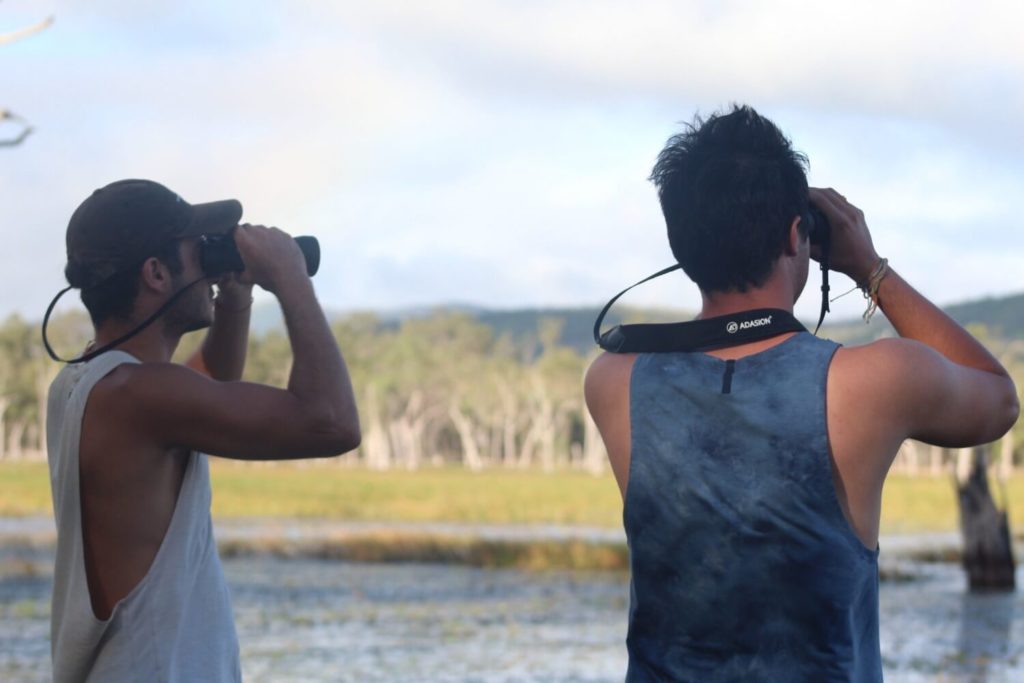
Becker, Cantelmi, and Green been conducting research in many areas of Australia, they said, including Crater Lakes National Park and the area near Cairns. They conduct their own research daily, including planning and executing data collection.
Being able to survey an animal like the musky rat kangaroo does provide a lot of extra information on not just the animal, but the health of the ecosystem as a whole.
Becker said the musky rat-kangaroo is endemic to the wet tropics and is an extremely ancient species. The group set up trail cameras and counted sightings around Lake Eacham and Lake Barrine in the Crater Lakes National Park, and recorded 24 sightings over six transects in the couple of days, Becker said.
“One of those areas was a reforestation area and there’s a ton of really big cyclones that came through Australia very recently, so there’s a lot of these areas in the rain forest especially that are still recovering,” Becker said. “So being able to survey an animal like the musky rat kangaroo does provide a lot of extra information on not just the animal, but the health of the ecosystem as a whole.”
The group said the low frequency of musky rat-kangaroo sightings presented a challenge. Becker said that when no musky rat-kangaroos were present, they looked at details of the ecosystem such as fruit on the forest floor to try and get as sense of what the population must look like.
“It’s definitely taught me a lot about this field and working in research and how you don’t always have to like your answers, but even the absence of the musky rat kangaroos had a lot of value,” Green said.
Once the curriculum of the program is completed, students are able to choose between an internship and an independent research project abroad. Becker said he is planning to conduct research at a university in Brisbane on urban noise and bird eggs. Cantelmi said he was also looking forward to his independent study project later in the semester, which he said relates to his coursework studying marine biology at Occidental.
Who gets to spend 10 days consecutively in a rain forest in Australia? That was quite an amazing experience.
“I’m lucky enough to have an advisor who is a late-stage PhD student doing research on habitat degradation in the coral reefs and the Great Barrier Reef,” Cantelmi said. “That’s something that I want to do in the future, conducting research, so that gives me exposure and involvement and connection as well.”
Cantelmi said he chose a program in Australia because it was one of the best places to study marine biology. The group is currently on Lizard Island, on the northern part of the Great Barrier Reef, and is in the process of collecting data for a field project on the reef, according to Becker.
Julie Jimenez Santos, the associate director of the Occidental International Programs Office (IPO), worked directly with Becker and Cantelmi during advising for their trip.
“They are taking a methodology class, which helps and couples with the research they’re going to be doing. But along the way, in the program, they’re being exposed to all these different things related to the course theme or topic,” Santos said. “And the students are kind of getting fired up about different areas that they’re interested in.”
Santos said that Becker and Cantelmi are the first Occidental students to return to Australia since the pandemic-induced border closures. The program is a part of the School for International Training (SIT), one of many partners of the IPO.
… [T]hey’re being exposed to all these different things related to the course theme or topic and the students are kind of getting fired up about different areas that they’re interested in.
Robin Craggs, the executive director at the IPO, said she has seen great development in the study abroad program at Occidental College and hopes to see engagement return as the world emerges from the pandemic.
There are typically fewer study abroad opportunities for STEM majors than humanities majors, Craggs said, making projects like Becker and Cantelmi’s more rare in study abroad.
“STEM students are underrepresented,” Craggs said. “We try to work really hard to get STEM students abroad, but they tend to go on summer research programs instead of full semesters.” …
Becker said the group has worked with several advisors throughout their trip, including their main academic advisor and a specialist in birds and rain forest ecology, and is currently working with a marine biologist. Becker said he is excited to work with more researchers as he moves into his independent study project.
Cantelmi said he hopes to return to Australia after this experience—either for further study, or for his career—and that connections in the field, as well as experience conducting field research and with the ecosystems, have been an extremely important element of his study abroad.
“Who gets to spend 10 days consecutively in a rain forest in Australia?” Cantelmi said. “That was quite an amazing experience.”
Lauren Walthour is a University of Washington marine biology student taking part in SIT Australia: Rainforest, Reef, and Cultural Ecology. UW talked with Lauren about her studies, research abroad experiences, and what inspired her to pursue a marine biology major. Her story and video are reprinted here with permission.
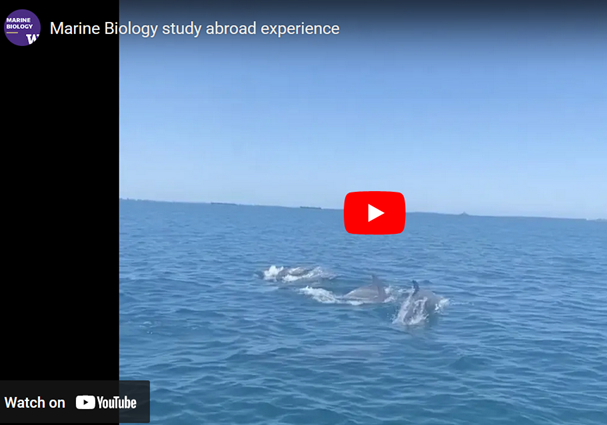
Find out more about SIT Australia: Rainforest, Reef, and Cultural Ecology
I am participating in the semester-long study abroad called SIT (School for International Training) Australia: Rainforest, Reef, and Ecology program. I am a junior with a major in marine biology and my dream has always been to visit the Great Barrier Reef and conduct research on it. The application process was a bit confusing at first, but I ended up finding a program that fit my marine biology dreams, but also would be able to teach me about topics I didn’t know as well, such as rainforests and ecology.
I ended up finding a program that fit my marine biology dreams, but also would be able to teach me about topics I didn’t know as well, such as rainforests and ecology.
My program has allowed me to go on multiple excursions to the rainforest, camp with Aboriginal elders and learn about their history, conduct research on urban bird ecology, and, of course, visit the Great Barrier Reef. One of my favorite excursions was visiting the world-renowned Lizard Island Research Station for two weeks. Here I collected data on triggerfish species and their abundance across different reef habitats.
I chose this program mainly for the Independent Study Project (ISP) portion. I have always wanted to conduct my own research that I can hopefully publish one day. The ISP is a project where you choose an advisor from anywhere in Australia, and they advise you in research of your choosing. You then do a write-up of 40 pages of your findings.
My study abroad was based out of Cairns, in North Queensland, so I wanted to see a completely different side of the country. I ended up finding Dr. Delphine Chabanne from Murdoch University in Perth, AU. She conducts research on Indo-Pacific Bottlenose dolphins (Tursiops aduncus) in the coastal and estuarine waters surrounding Perth. My project is an addition to her research that has been conducted since 2011. Her past research on these dolphin communities was from 2011-2015, and she wanted to start up again this year.
I chose this program mainly for the Independent Study Project (ISP) portion. I have always wanted to conduct my own research that I can hopefully publish one day. The ISP is a project where you choose an advisor from anywhere in Australia, and they advise you in research of your choosing.
I am looking at skin lesions in these two resident dolphin communities to see if they have increased in scarring over the seven-year gap. My typical day includes waking up bright and early to get on a boat and participate in boat transects either in the Swan Canning Riverpark Estuary or the Kwinana Shelf. I collect environmental data on temperature, depth, salinity, turbidity, weather, boat traffic and more. When dolphins are spotted, I help aid in boat-driving while we collect photos to be used for photo ID in the future. I then go back home, process the data, and see if the resident individuals’ scars are new or old from the 2011-2015 data.
My love for marine biology started in fourth grade when I visited SeaWorld and swam with the dolphins (even though I know it’s a terrible place now). I ended up making a bucket list, with “becoming a marine biologist” as number one, and “visit Australia” as number two. The reason I chose this project is because it feels like a full-circle moment for me. I am fulfilling every wish my younger self ever dreamed of. I am so beyond happy with my choice of this program and am loving every second. I wanted to do this Instagram takeover to help others find their perfect study abroad program, and help to answer any questions!
Rachael has been homestay coordinator since 2013 and has been hosting SIT students since 2001. She has a Bachelor of Applied Science in Environmental Health. She has worked in local government health departments as an environmental health officer and trainer and held a variety of administration roles. She recruits, screens, and trains homestay families; assigns students to homestays; and organizes social events associated with the homestay.
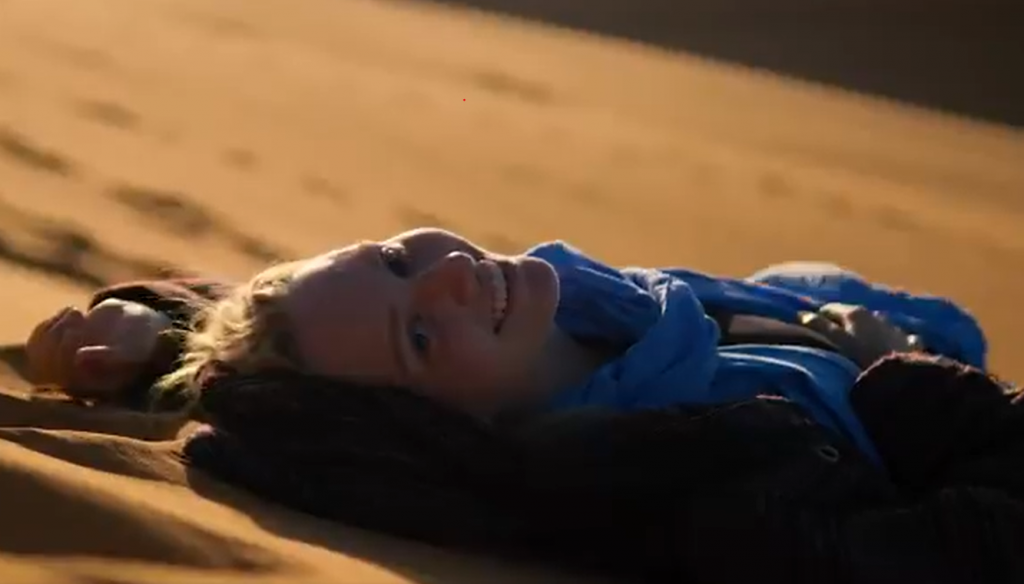
What’s better than a semester or summer abroad? Capturing all your overseas adventures on film – and then sharing them with the world.
For the past few years, SIT Study Abroad has asked students to submit the best of what they shoot from their travels to one or more of the seven continents where it hosts its groundbreaking programs. This past year yielded some of our finest videos yet, with the winners’ circle dominated by Australia and Morocco – and even some footage that might more accurately be called short film.
Below, we present the best of 2019, selected from dozens of entries. We had one simple requirement: All submissions had to be 60 seconds or less.
First Place: Stephen Higgins of Saint Michael’s College, who discovered the multifaceted diversity of Morocco during his travels on SIT’s Morocco: Field Studies in Journalism and New Media program. In this colorful and genuinely moving film, he shows us the essence of a nation. Watch the full video here.
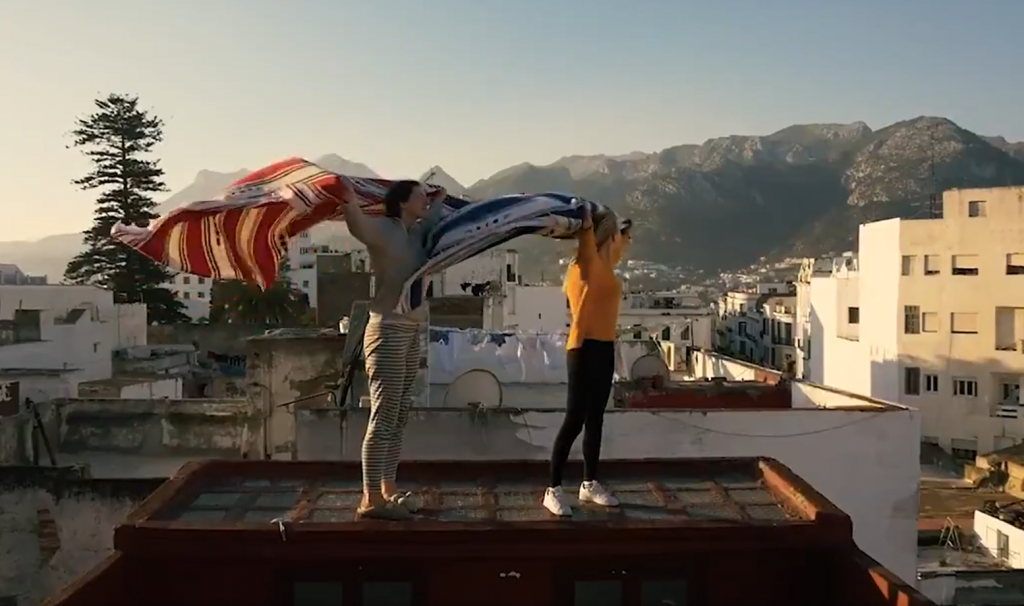
While the winners of SIT’s 2019 video contest frequently showcase the highlights of their study abroad experiences, they more importantly convey the authenticity of their environment, and a deeper understanding of the cultures in which they have immersed themselves.
And sometimes, that happens underwater.
Such was the case with our second-place winner, Jillian Lessing of Middlebury College, who managed to find time to shoot above – and below – the ocean while also conducting her Independent Study Project at Australia’s Lizard Island Research Station. Her submission, created during SIT’s Australia: Rainforest, Reef, and Cultural Ecology program offers an extraordinary glimpse of what it’s like to study coral planulae on the Great Barrier Reef. Watch Jillian’s video here.
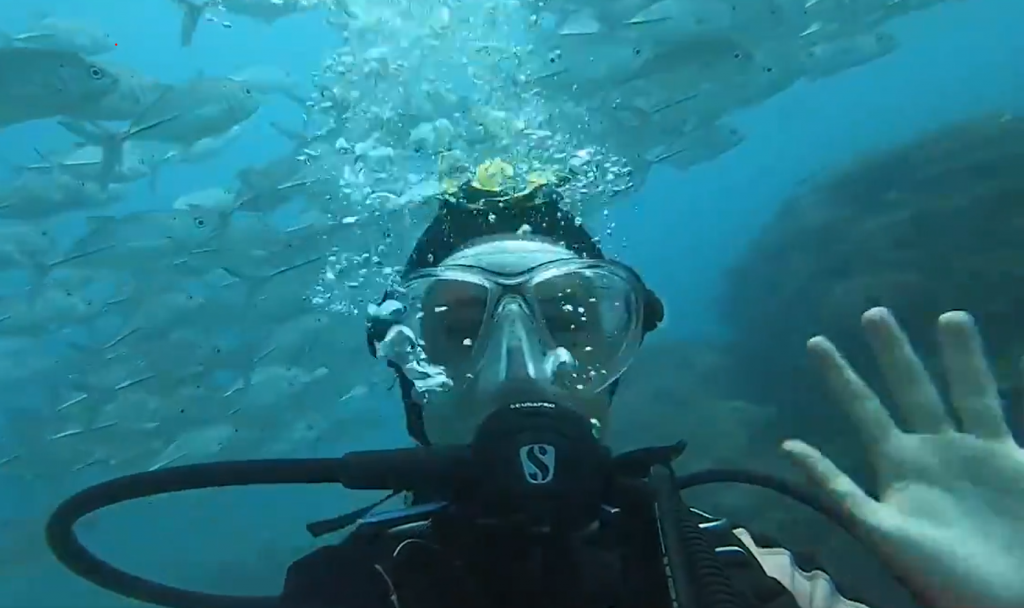
For third place, SIT is excited to announce two videos tied in a dead heat. Both are whimsical and artistic in their own way.
Our first third place winner, Naomi Miyamoto of Occidental College, created a very personal portrait of her homestay mother in Rabat, Morocco, as part of SIT’s Morocco: Field Studies in Journalism and New Media program. Listen to her deeply touching story of her host mother, her homestay family’s values and traditions, and how she learned to cook traditional Moroccan dishes. To see Naomi’s video portrait, click here.
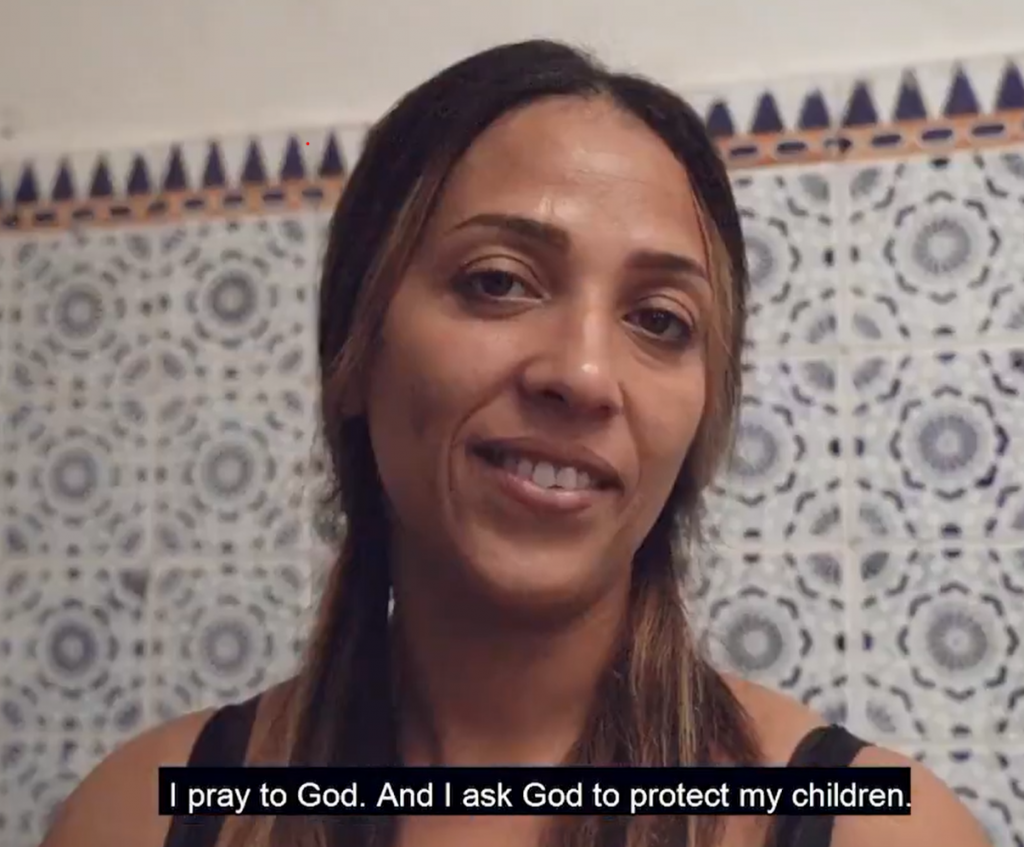
Finally, our other third place winner of the SIT Video Contest is Catalina Saldana of DePauw University, who shares her exciting experiences from the Australia: Sustainability and Environmental Action program.
Follow Catalina on her journey across Australia, from Mullumbimby to Sydney to Tasmania in this video.

SIT received a wide variety of entries from around the world this year, covering students’ time abroad throughout 2019.
Entries were submitted from November 22 to January 1, with the first place winner receiving a $250 gift card; the second place winner a $150 gift card; and our third place winners splitting the $100 prize with a $50 gift card each.
For more on SIT’s video contests, check us out on Twitter @SITStudyAbroad under #SITVideoContest.
As program coordinator, Gina organizes the logistics of flights, accommodations, transport, venues, and finances, provides admin support, and travels on field trips as a driver and support on hikes. She has worked with SIT since 2003 and was previously a homestay host for six semesters. Gina comes from a commercial cookery background having run her own café and catering businesses. She has studied tour guiding, youth work, disability support, community services, and Auslan sign language. She worked in these sectors in both residential and educational settings while also working as a homestay coordinator with SIT for 19 years. Gina is a passionate environmental protector and nature photographer who loves to share her knowledge of Australian wildlife and environmental justice with students.
Eshana is an ecopsychologist and has taught in the program since 2000. She has an undergraduate degree in ecology and psychology from the University of Sydney and a PhD from James Cook University in Far North Queensland. She focuses on understanding the psychological relationship between people and nature and using this to motivate social change and environmental action. Eshana is on the editorial board of the peer-reviewed journal Ecopsychology. She has consulted for Sustainable Futures Australia since 1998, specializing in developing innovative educational materials and experiences and systems for organizational change. She has managed award-winning projects. Eshana collaborates with visual artists and photographers and uses creative and interpretive writing for sustainability social marketing campaigns. She works in partnership with government, industry, and communities (including Aboriginal custodians).
In her role with SIT Australia, Eshana facilitates student discussion groups, sets essay topics, teaches research methods, and supervises Independent Study Projects. She leads a two-day experiential workshop on environmental psychology in a rainforest retreat center and a workshop on action for social change.
Vanessa’s roots are in France and Germany. In 2000, she moved to Townsville, where she completed a BS with Honors in marine biology in 2003. After working at the University of Perpignan (France), she returned to James Cook University and obtained her PhD in 2010. She is a research fellow with the ARC Centre of Excellence in Coral Reef Studies at JCU in Townsville. Her research focuses on the causes and consequences of biodiversity loss from a genetic to ecosystem level in coral reef fish assemblages and the effects of climate change on reef organisms.
Russell is a Senior Traditional Elder of the Banjin and Warragamay people of the Hinchinbrook Island region between Cairns and Townsville. As a boy, Russell learned many traditional skills and stories from his grandmother. “I went to two schools — mainstream school and my grandmother’s school,” he says. “Now it’s my job to teach my sons, to pass on that knowledge and keep those skills and traditions alive.” SIT has had the privilege of working with Russell since 1993. He specializes in teaching students the cultural and material aspects of the traditional Aboriginal lifestyle in coastal North Queensland. Russell uses stories, discussions, and bush walks to teach students ethnobotany, tool making, and Aboriginal environmental philosophy.
SIT Study Abroad Programs
- Australia: Rainforest, Reef, and Cultural Ecology
- Australia: Sustainability and Environmental Action

